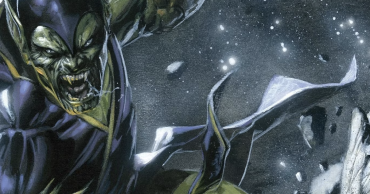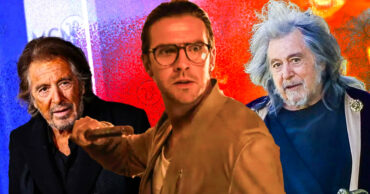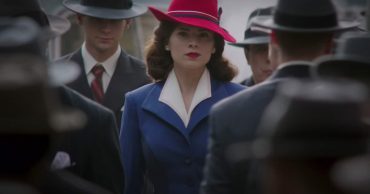
Over the years, there has been an ongoing debate over whether art imitates life, or if it’s the other way around. In many cases, though, it appears that life really is influenced by art, especially when the art in question is a movie or TV show. Time and time again, some of the things said in popular series and films have become lasting parts of our vocabulary and many of them have managed to withstand the test of time. In fact, some of these words and phrases have become so popular that many people probably don’t even realize that they originated on screen. Continue reading for 10 popular words/phrases that were invented on-screen.
1. Life is Like a Box of Chocolates
The phrase “life is like a box of chocolate…you never know what you’re gonna get” was popularized in the early 1990s thanks to the movie Forrest Gump. The way the quote was presented in the film, it was easy to believe that this was a legitimate saying that had been floating around for years. In reality, however, the phrase was actually invented in the movie. It didn’t appear in the novel the movie is based on which was released in 1986. Unfortunately, we weren’t able to find any specific information on how the person who wrote the saying came up with it. “Life is like a box of chocolates” may not be something that that most people use on a regular basis, it’s a phrase that will always be remembered.
2. Catfish
There was once a time when the word catfish simply referred to a kind of fish. However, those days are long gone. Now, when people hear the word catfish, they immediately think of someone who is pretending to be a completely different person on the internet. The term was coined in the 2001 documentary of the same name and Catfish has since become a docu-series on MTV. Although most people think that Nev Schulman came up with the new definition for catfish, that actually isn’t the case. The new meaning of catfish was created by a man named Vince Pierce whose wife, Angela, catfished Nev and was the subject of the documentary. During the film, Vince said:
“They used to tank cod from Alaska all the way to China. They’d keep them in vats in the ship. By the time the codfish reached China, the flesh was mush and tasteless. So this guy came up with the idea that if you put these cods in these big vats, put some catfish in with them and the catfish will keep the cod agile. And there are those people who are catfish in life. And they keep you on your toes. They keep you guessing, they keep you thinking, they keep you fresh. And I thank god for the catfish because we would be droll, boring and dull if we didn’t have somebody nipping at our fin.”
3. Gaslight
In recent years, the term “gaslighting” has become incredibly popular. The word is used to describe a manipulation tactic in which a person attempts to make another person question their own judgment and perception of reality. While it may seem like this term is new, it’s actually much older than many people know. Contemporary use of the word originated from the British film called Gaslight that was released in 1940. The movie is based on a play called “Gas Light” which was written by Patrick Hamilton in 1938. In 1944, a remake of Gaslight was released in the United States and it earned two Academy Awards. According to the movie’s description on IMDB, Gaslight the story of a young woman who, with her husband, moves back into the house where her aunt was murdered. Little does she know, her husband has a “secret that he will do anything to protect, even if it means driving his wife insane”. It’s unclear exactly why the term has gotten so popular among the mainstream over the last few years, but it looks like it’s here to stay. In fact, the phrase has even even become a staple among mental health professionals.
4. Cowabunga
Cowabunga is a term that most people associated with the Teenage Mutant Ninja Turtles. Though it’s true that the Turtles are responsible for making it so popular, they aren’t the ones who invented it. Cowabunga actually originated with the children’s series Howdy Doody which aired from 1947 until 1960. According to an article in The Chicago Tribune, the word was created by Edward Kean who worked as the head writer on Howdy Doody. Originally, however, the word was spelled “kowabonga”. Kean told the Tribune, “On `Howdy’ we had a character named Chief Thunderthud, and (host) Buffalo Bob Smith rightly thought the old boy needed his own greeting. Movie Indians said `How!’ in those days, you know, but I always felt `How’ sounded stupid and contrived. Did any self-respecting Indian ever say `How!’? I seriously doubt it.” He continued, “Our Princess Summerfall Winterspring used kowagoopa as her greeting, so kowabonga seemed logical enough for Chief Thunderthud. At least Bob and I felt kowabonga worked”. In regards to the changed spelling, Kean said, “Later, I had the chief use kowabonga as a mild curse in his fights with Clarabell. Kowabonga meant `hello’ or `darn it!’ My preferred spelling was kowabonga, but I see where the surfers changed it to cowabunga.” Surprisingly, he never made any money from the word.
5. Poindexter
Poindexter is a word that isn’t as popular as it used to be, but there was a point in time when it was many people’s go-to way to call someone a nerd. The word comes from the short-lived animated series Felix the Cat which aired from 1958 to 1960. In the series, Poindexter was a character who was highly intelligent – especially when it came to science. It’s unclear how the show’s creators came up with the name for the character, however, they may have simply known someone in real life with the last name Poindexter.
6. Spam
For many years, the word spam was only used to refer to the brand of the canned meat. However, that started to change in 1970 thanks to a Monty Python sketch called “Spam”. The skit involved a restaurant where all of the items on the menu are related to Spam (the food). Every time the waitress says the word Spam, she is accompanied by a group of singing Vikings who repeatedly sing the word “spam” until it becomes unbearable. By the 1990s, the term had started to take on a new meaning as a way to describe unwanted messages. As the internet continued to grow, so did the amount of spam and the word has become a permanent part of all of our vocabularies.
7. Five-O
Five-O has been a popular slang term for police for many years. While this one may seem like a no-brainer, there are a lot of people who don’t know that the term is derived from the TV series Hawaii Five-O which aired from 1968 to 1980. Even though the series was about a fictional police department, the “Five-O” in the title didn’t have anything to do with the police. The creators came up with the title as a way to pay homage to Hawaii for being the 50th state to enter the United States. A reboot of the series debuted in 2010 and ran until 2020.
8. Bucket List
It may seem like the term “bucket list” has been around for decades, but that’s not true at all. The idea of a bucket list was actually created by Justin Zackham who wrote the 2007 movie The Bucket List. Originally, Zackham came up with a “List of Things to do Before I Kick the Bucket”. One of the things on that list was to write a successful screenplay. He ended up shortening the name of his list to “Justin’s Bucket List” and he used the bucket list idea to write the movie.
9. Yada, Yada, Yada
The phrase “yada, yada, yada” is a little bit different from some of the other items on this list because it wasn’t technically invented on-screen. However, the popular sitcom Seinfield played an unforgettable role in making the phrase more well known. In the spring of 1997, the series aired an episode called “The Yada Yada” that featured George’s new girlfriend who regularly said “yada, yada. yada” as a way to skip over boring details when telling her stories. The episode was nominated for an Emmy and is considered one of the show’s most popular. No one knows exactly how the phrase came into existence, but its first recorded use was in the 1970s.
10. Is That Your Final Answer?
When the game show Who Wants to Be a Millionaire debuted in 1999, it popularized the use of the phrase “is that your final answer?”. During the game, the phrase is used as a way for contestants to lock their answers. In the real world, it became a stand-in for “are you sure?”. This one may not be as unique as some of the others on the list, but it’s earned its place in popular culture nonetheless.Seinfield
 Follow Us
Follow Us





